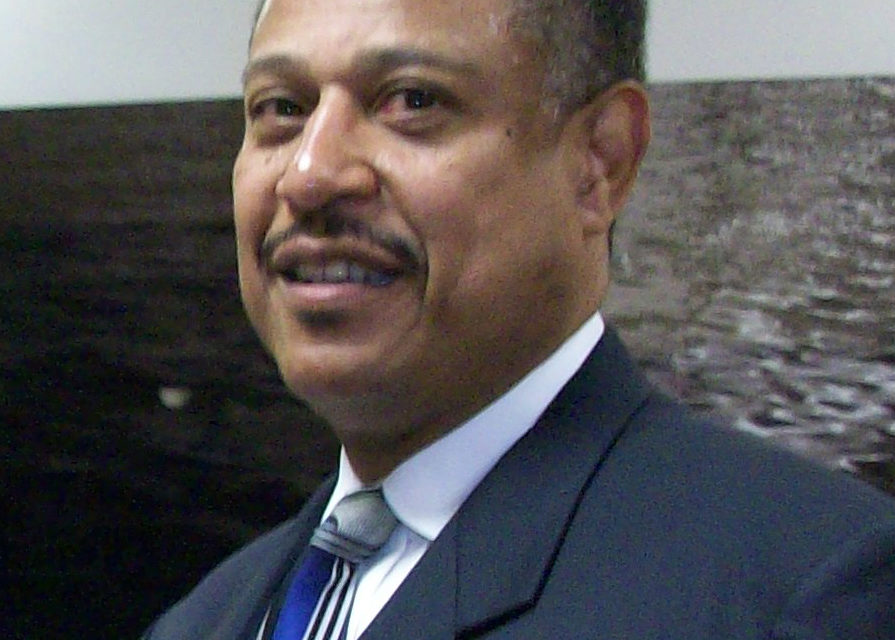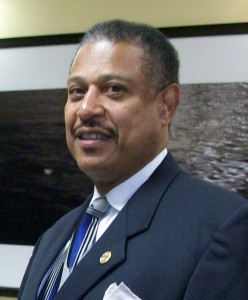By Vernon E. Martin, Jr. President of Martin Professional Business Associates
A successful interview is one in which the candidate leaves with a feeling that they know the interviewer and the job, and the interviewer feels they know the candidate.
You understand the interviewer and they understand you. In the interview, the employer has three objectives: (1) to gather relevant information about your qualifications; (2) to access how your qualifications match the requirements of the job; (3) to present the organization very positive to you.
Your objective as a candidate should be to communicate self information and qualifications clearly and accurately and to seek relevant information about the particular job, position, and employer.
Most interviews can be successful for you, the candidate, by preparing for the expected and unexpected. The process is usually a six part process:
1. Preparation
2. Establishing rapport
3. Infomercial- Talking about yourself
4. Talking about the organization
5. Close-Out
6. Evaluation
You are part of the first five segments; the sixth takes place usually while you are on site or right after you leave the premises.
To prepare for the on site interview, you should know the company’s products and services, financial picture, geographical locations and culture.
You should take the time to research what alumni are working there from the institution you are graduating or have graduated.
Use them to research the kinds of positions that are available and the environment or workplace (culture). Others that are in the workplace can lend first hand knowledge on what they like, dislike, pitfalls, and community involvement. Also inquire about the demographics of the area in which you will be working, provided you are successful with the on-site interview.
If you have to travel to the interview city, you will most likely arrive the evening before the interview is scheduled. Be sure you are comfortable with knowing exactly where you are going for the interview. Plan on arriving at least 30-45 minutes before the actual interview. This allows you time to unwind, make sure that you are well groomed and to relax.
Most on site interviews will put you in a panel interview, group, or one on one interview setting. Most of you will be escorted into a room where you will meet one person, a group or panel of people. Be sure that your handshake is firm with eye contact on each individual as you are introduced. Let the interviewer invite you to be seated. Your eye contact is very important because often it is the believability concept that sells what you are saying. Your body language also sends a message of confidence and sincerity. In addition to the firm handshake and eye contact, be sure to have a well balanced posture, and open relaxed facial expression, a firm voice, and use appropriate gestures when emphasizing key words.
The first 30 seconds to five minutes of the interview are very important. The first impression is next to impossible to change.
You never get a second chance to make a first impression.
Your appearance and dress is critical in that you should fit into the culture that you are interviewing for by dressing appropriately. You should wear conservative colors and avoid excessive jewelry, flashy colors, excessive make up, strong perfumes, and colognes.
Be sure that you have practiced your 30 second or 3-5 minute infomercial.
The strong lead tells the interviewer about yourself, what your assets and strengths are and the value you can bring to their organization. Be prepared to give examples of a time when you exemplified leadership, a time when things were not going well and you turned things around. Also be prepared to discuss your involvement in professional societies, civic organizations and summer or part time employment. Be able to express a time when you experienced failure and the lessons that came from that experience. Talk about some infrastructure that you put in place to avoid the same mistakes or failures from happening again.
Be yourself during the interview. Bear in mind that the organization chose to interview you. Let the knowledge and your interview preparation bolster your confidence throughout the interview. During the interview, take notes. Inform the interviewer(s) at the beginning of the interview that you would like to take some notes to help in the questioning and answering session at the end of the interview.
The competencies that will be evaluated during the interview are skills that you have polished during your education, extra curricular involvement, co – op and summer experiences. The areas that will be evaluated are adaptability, communication, initiative, interpersonal acumen, planning and organization, accountability, resourcefulness, work orientation, and negotiation skills among others.
Be a good listener, but certainly not reticent about asking penetrating questions.
Some routine questions that will be asked of you during the interview are listed below:
Tell me about yourself.
.What do you look for in a job?
. Why did you choose your particular field of study and work?
. What are the advantages of your chosen field?
. What are your own special abilities?
. What makes you think that you could be successful with our organization?
. What types of positions are you most interested in?
. What do you know about our organization?
. Why should we hire you?
. How do you perform under pressure?
. Are you willing to relocate multiple times?
. What have you learned from some of the jobs that you have held?
. Is your GPA indicative of your ability?
. What leadership positions have you held in college and in your community?
. Are you very creative? Give some examples.
. What is your philosophy of management?
In answering all questions, be specific, concise, and give examples that show your ability
to provide direction, allocate resources, that you can execute with quality, and have a
passion to succeed. Exemplify that your value system is one of fairness, truth telling,
promise keeping, and respect for all individuals.
Be prepared for the unexpected by writing down five questions that you hope no one would ever ask you in the interview.
Take sometime and thoughtfully answer those
questions. Once you can master how you would answer those questions on site, your
comfortability will come natural to shine in any situation that you are put in doing the
interview.
Some routine questions that you may want to ask the interviewer are:
. If hired, would I be filling a newly created position, or would I be replacing
someone?
. Would you describe a typical work day and the things that I would be
responsible for and accountable for?
. What are the most critical duties of the job?
. How will I get my feedback on my performance?
. What is the career path from this position to the top of the organization?
. How does this position contribute to the bottom line of the organization?
. What is the diversity mix of your management and organization?
Do not ask about salary. Let the organization bring up the subject matter.
During the interview, sell yourself, show what you can do for the organization, show that you are a team player, ask for the job, and never apologize for any of your areas for opportunity to grow. Present those areas from a positive view point if they must be discussed. Project confidence and never imply that you can work miracles. You should not discuss race, religion, and politics.
Be sure that you never lose your personal touch and give the interviewer(s) a true sense of the value that you can bring to their organization by letting the qualities come out that are unique to you.
Consult a dining etiquette book to be sure that you are buttoned down with regards to the whole dining experience.
Part of the interview may also take place in this venue.
Be clear as you end the day, what the next steps in the process are for moving forward. If an offer is made on the spot, thank the organization and take some time to ponder once you back home to make an informed decision. Send a handwritten thank you note and make it personal to those that interviewed you in the process.
It is of utmost importance that you feel valued, challenged, have an excellent compensation package, training for personal and professional development, and a career path progression that is defined.
Your first commitment is preservation of self. Landing the “Right Offer” is your goal in the on – site interview to have choices about your bright future.
Good Luck in your career search.











